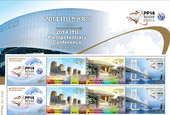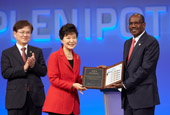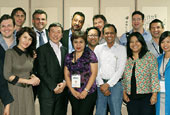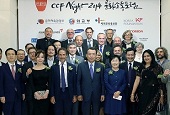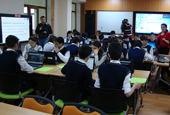Top information and communications technology (ICT) officials from across the world have adopted the Busan Declaration at the 2014 ICT Ministerial Meeting on October 19 in Busan.
In the declaration, ministers and vice ministers from 50 nations across Asia, America, Europe and Africa called for sustainable development with inclusive ICT. The meeting was held at the Nurimaru hall on the sidelines of the International Telecommunication Union (ITU) Plenipotentiary Conference, also being held in Busan.
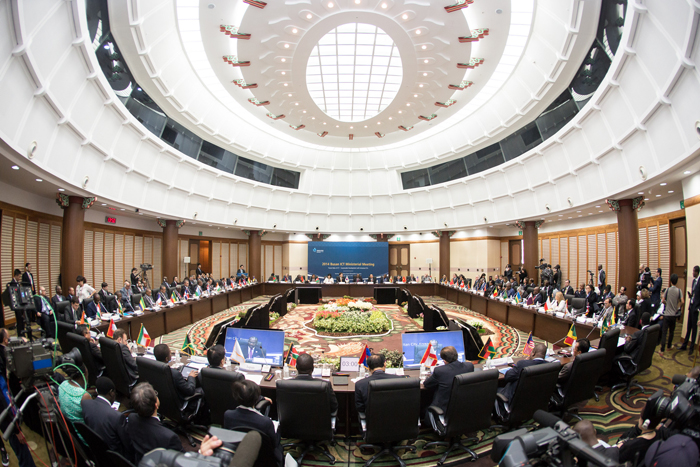
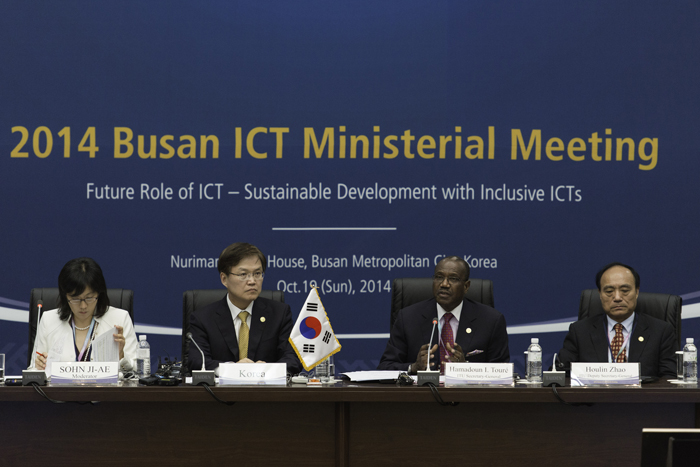
The Busan Declaration calls for cooperation on global ICT growth and mutual development, with goals to promote sustainable development that embrace all communities by bridging the digital divide. It also encourages all members to participate in establishing future-focused ICT strategies at the ITU Plenipotentiary Conference.
The declaration hopes to attain internationally agreed upon development goals and objectives to overcome crises and to create value through the use of ICT. The declaration also shares the vision for the U.N.'s Millennium Development Goals (MDGs) after 2015.
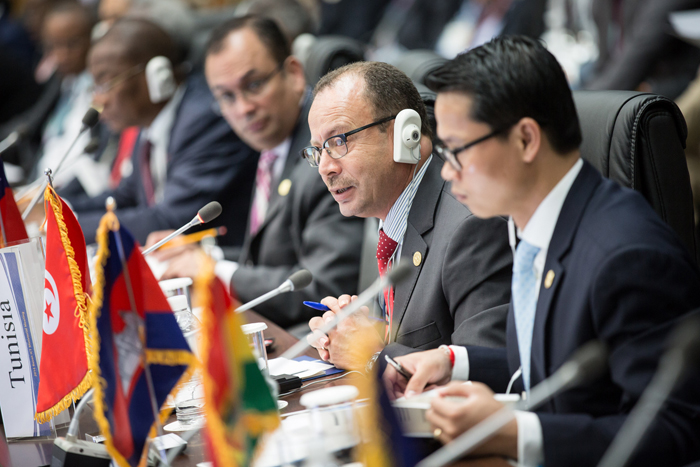
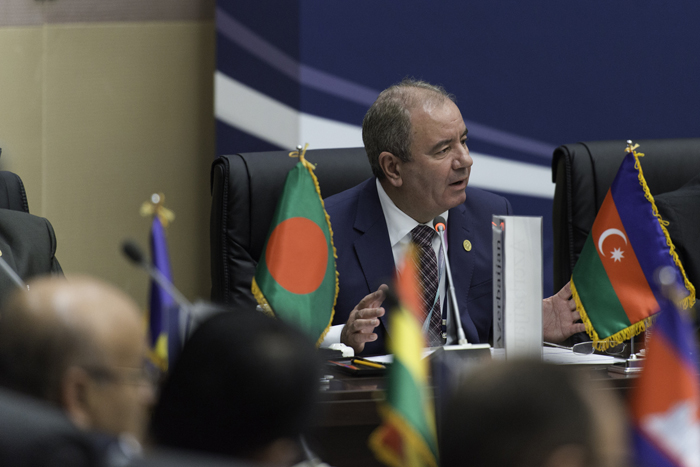
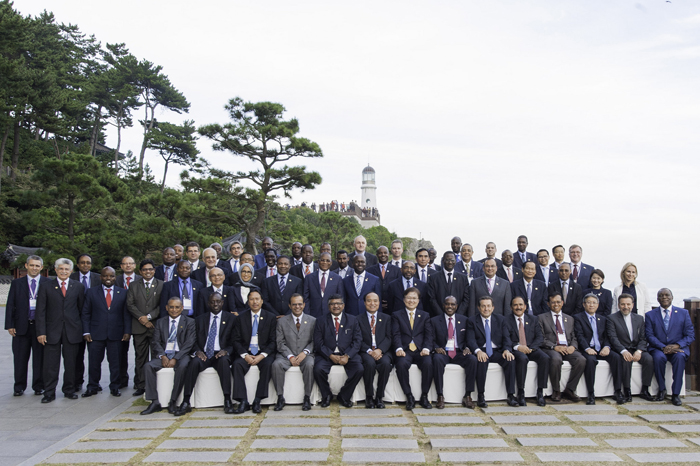
Participants freely exchanged ideas during the three-hour gathering and shared their ICT policy experiences, current agendas and future visions.
"We hope that all humanity, transcending nationality, race, religion and sex, would benefit from ICT, thereby living in happiness and prosperity. Korea will lead the efforts to achieve that goal," said Minister of Science, ICT and Future Planning Choi Yang-hee.
"There has been enormous progress in ICT, but the digital divide remains a problem as still two thirds of the world's population does not have access to the Internet," said Choi. "We need to provide special support for marginalized and vulnerable groups, such as women, children, low-income families, indigenous people, the elderly and people with disabilities."
"If young people who have not experienced ICT due to poverty are given proper opportunities for education and are allowed to develop creative ideas, they will be able to contribute to global economic growth and to the development of ICT itself," said Choi. "The development of ICT promotes economic growth and job creation and the spread of the 'Internet of Things' (IoT) will produce social and economic benefits."
By Limb Jae-un
Korea.net Staff Writer
Photos courtesy of the ITU Plenipotentiary Conference Organizing Committee
jun2@korea.kr

In the declaration, ministers and vice ministers from 50 nations across Asia, America, Europe and Africa called for sustainable development with inclusive ICT. The meeting was held at the Nurimaru hall on the sidelines of the International Telecommunication Union (ITU) Plenipotentiary Conference, also being held in Busan.


Ministers and vice ministers from 50 nations across Asia, America, Europe and Africa attend the ICT Ministerial Meeting in Busan on October 19.
The Busan Declaration calls for cooperation on global ICT growth and mutual development, with goals to promote sustainable development that embrace all communities by bridging the digital divide. It also encourages all members to participate in establishing future-focused ICT strategies at the ITU Plenipotentiary Conference.
The declaration hopes to attain internationally agreed upon development goals and objectives to overcome crises and to create value through the use of ICT. The declaration also shares the vision for the U.N.'s Millennium Development Goals (MDGs) after 2015.


The Busan Declaration is adopted at the ICT Ministerial Meeting in Busan on October 19. The declaration calls for sustainable development with a more inclusive use of ICT.

Participants in the ICT Ministerial Meeting in Busan pose for a photo.
Participants freely exchanged ideas during the three-hour gathering and shared their ICT policy experiences, current agendas and future visions.
"We hope that all humanity, transcending nationality, race, religion and sex, would benefit from ICT, thereby living in happiness and prosperity. Korea will lead the efforts to achieve that goal," said Minister of Science, ICT and Future Planning Choi Yang-hee.
"There has been enormous progress in ICT, but the digital divide remains a problem as still two thirds of the world's population does not have access to the Internet," said Choi. "We need to provide special support for marginalized and vulnerable groups, such as women, children, low-income families, indigenous people, the elderly and people with disabilities."
"If young people who have not experienced ICT due to poverty are given proper opportunities for education and are allowed to develop creative ideas, they will be able to contribute to global economic growth and to the development of ICT itself," said Choi. "The development of ICT promotes economic growth and job creation and the spread of the 'Internet of Things' (IoT) will produce social and economic benefits."
By Limb Jae-un
Korea.net Staff Writer
Photos courtesy of the ITU Plenipotentiary Conference Organizing Committee
jun2@korea.kr
